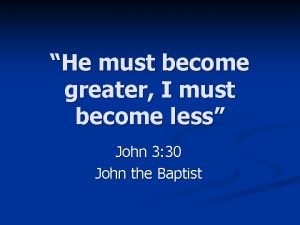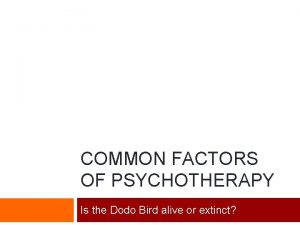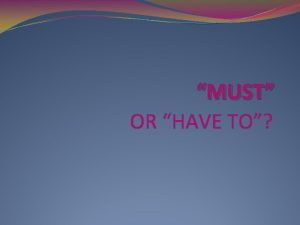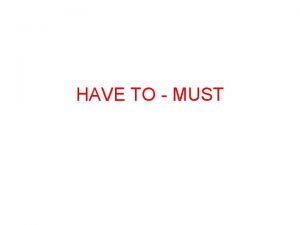Must and Have To Must and Have to




- Slides: 4

Must and Have To Must and Have to are not exactly the same. We usually use must to give or ask for orders – the obligation comes from the persons who is speaking or listening. We use have to to talk about an obligation that comes from “outside” – perhaps because of the law, or a rule, or an agreement, or because some other person has given orders.

Examples I must stop smoking. (I want to) I have to stop smoking. Doctor’s orders. I can’t come to work tomorrow morning because I’ve to see the dentist. I’ve got bad toothache. I must make an appointment with the dentist. Must you wear dirty old jeans all the times? (= Is it personally important to you? ) Do you have to wear a tie at work? (= Is it a rule? )

Mustn’t and Don’t have to Mustn’t is used to tell people not to do things: it expresses “negative obligation”. (It’s prohibited = Can’t) Haven’t got to, don’t have to, don’t need to and needn’t are all used to say that something is unnecessary. They express absence of obligation: NO Obligation. You mustn’t tell Harold. (=Don’t tell Harold) You don’t have to tell Ann. (= You can if you like, but it’s not necessary) You don’t have to wear a tie at work, but you mustn’t wear jeans. (= Wear a tie or not, as you like. But NO jeans)

Have to do sth and Have sth to do Have to do something = must do something e. g. My train leaves in five minutes so I’ll have to go now. Have something to do = have something that you need or intend to do e. g. I have ten more letters to write.







